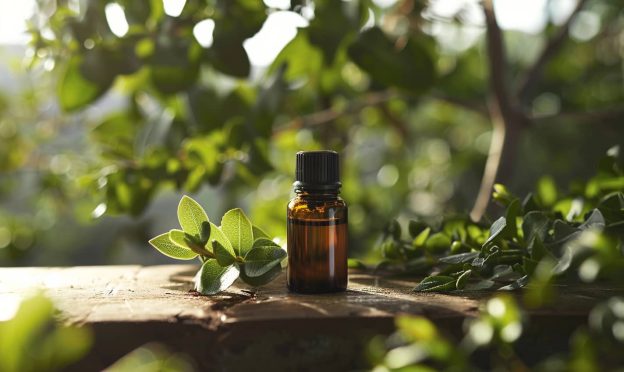Feeling sad from time to time is one thing. But when we talk about depression, we refer to a specific diagnosis—one that is chronic and disrupts life. It is a complex condition, and it is more common than many realize—affecting millions worldwide. And the environment has a lot to do with it. This is where essential oils for depression come in.
But we will get to that shortly.
Biologically, depression can often be explained by an imbalance of neurotransmitters in the brain, particularly serotonin, norepinephrine, and dopamine. These chemicals affect our moods, our energy levels, and even our ability to have fun.
When they are not firing like they are supposed to, we may feel persistent sadness, inability to find motivation, difficulty concentrating, and plenty more.
Genetics, hormonal imbalances, chronic stress, and more can also influence depression.
The Environment’s Role in Depression
While our genetics lay the groundwork, how we interact with the world around us makes a difference. Environmental depression is a reality. Even the seasons can influence our chemistry to experience depression when the sun is gone (or even when the sun is out too much).
Indeed, the environment is a significant factor. Stress, lack of social support or friends, simply being in a stressful environment—all of these can impact your depression levels. Respectively, when these things are good (at least to you), they can help reduce depression symptoms.
This is also environmental. Working in a room with open windows and good lighting, a clean, spacious space, being in the woods, or seeing the ocean outside your window can help.
Essential Oils for Depression
So what are they? Essential oils are concentrated extracts from plants known for their fragrance and environmental properties. They have been used for centuries in various cultures for their healing properties. But can they really help with depression? Let’s take a closer look.
How Essential Oils Impact Your Body
Your nose is connected to your brain. That much is obvious: sending signals and receiving them. But more specifically, your nose (the olfactory system) is connected to the limbic system in your brain. This is where emotions, memories, and even arousal are.
It should ring true to you. Certain aromas can bring you right back to a time in your life. Or the smell of apple pie cooling gets you salivating. When these kinds of things are triggered, it becomes a cycle (in this case, a positive cycle) where the brain then delivers serotonin and dopamine. These two neurotransmitters affect mood.
So, short answer? Yes. Essential oils can help with depression. They aren’t a magic bullet or the answer to all your mental health woes. But they can absolutely help, especially if you respond well to certain oils and aromas.
Essential Oils Do Even More for Depression
Some essential oils can also reduce inflammation and cortisol levels, promoting a sense of calm and relaxation.
- Lavender Oil: Known for its calming effects, it can help reduce anxiety and promote restful sleep, which is crucial for mental health.
- Bergamot Oil: This citrusy oil has been shown to reduce stress and improve mood, making it a popular choice for those with depression.
- Rosemary Oil: It has stimulating properties that can help enhance focus and reduce mental fatigue, which are common issues in depression.
The Environmental Impact of Essential Oils
Back to the environment aspect of depression, essential oils can affect this in a few ways. Aromatherapy is a practice of bringing essential oils (and other aromas) into your space. It adds to the atmosphere to bring a sense of calm and well-being and can reduce stress.
Then, there is simply the personal care aspect. When we are willing to take care of ourselves, we enter another good cycle. It makes us feel better, helps us make better decisions, and moves us in a good direction on a personal level.
Taking a bath with oils, getting a massage, or using them in your skincare are all ways to take care of yourself. You can create self-nurturing rituals with essential oils for depression and see the difference it makes over time.
A Few Tips for Using Essential Oils for Depression
- Start Small: For topical use, begin with a few drops in a diffuser or a couple of drops in a carrier oil.
- Safety First: Always do a patch test to check for allergic reactions, and consult with a healthcare provider, especially if you’re pregnant or have existing health conditions.
- Quality Matters: Use high-quality, pure essential oils to ensure the best therapeutic effects.
Getting Help With Depression
As great as essential oils can be for depression, they typically are not the “cure.” They tend to be part of a holistic, individualized treatment option if they make sense for the person struggling.
So, yes. Make use of essential oils for your mental health. But always remember, depression is a disease of the mind. There is no shame in reaching out to get help from people trained to treat it.
If you want to know more about how a mental health facility or IOP option for treating depression can make a difference in your life, call us at Lido Wellness today: 949-541-8466.





